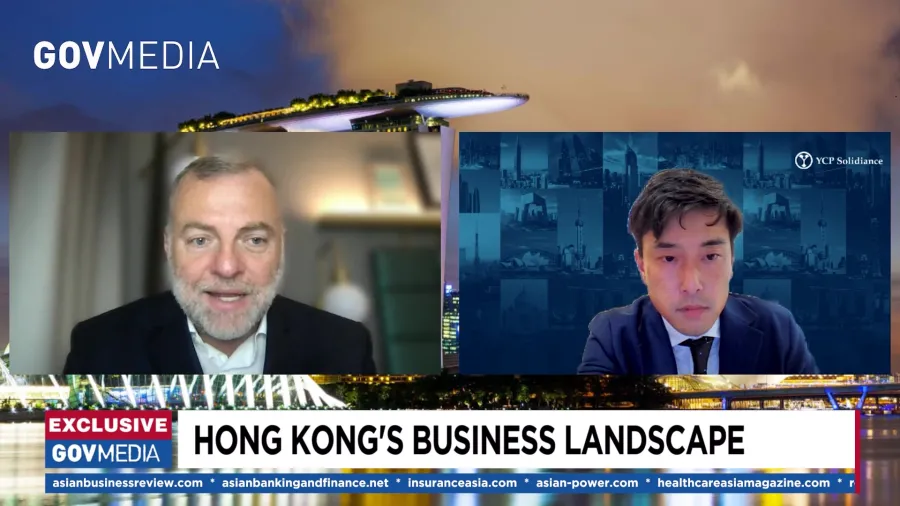
What businesses can expect under new HK leadership
Chief Executive John Lee’s handling of the quarantine measures raises concern about his plans to regain Hong Kong’s global competitive hub status.
Many businesses and lawmakers criticise Hong Kong’s gradual relaxation of travel restrictions as “too little, too late,” with calls to scrap the three-day surveillance period entirely. They noted that it would take firms and the economy much longer to recover even if Lee lifted the quarantine policy soon.
Prospects for recovery are expected to be disrupted by the global market movement amidst fears of recession. Financial Secretary Paul Chan Mo-po earlier warned of Hong Kong’s potential deficit of over HK$100b this year, which will be its second-ever highest following a shortfall of HK$232.5b in 2020.
Despite these potential issues, YCP Solidiance Partner Kei Hasegawa does not expect Hong Kong to lose any of its competitiveness in the future.
“We are not being negative about the background of Mr. John Lee. But then, we need to monitor how he will meet each policy, in which companies expect to grow in Hong Kong or utilise Hong Kong as the business centre,” Hasegawa said.
He pointed out that Hong Kong has advantages in terms of being a financial centre, and welcoming a lot of startups, especially for IT, fintech, and unicorns. These startups, especially China-based or Chinese-related companies, now aim to be listed on the Hong Kong Stock Exchange amidst the trade war between China and the US.
Moreover, the confirmation of an international banking summit in November of this year is one of the main drivers for calls on Hong Kong to completely scrap travel restrictions and regain its competitiveness in the market.
“A lot of experts request the government to open the border to maintain the competitiveness of Hong Kong, so we believe it doesn't take a long time to go back or come back to the normal situation,” he said.
Hasegawa added that Hong Kong can strengthen its position to connect the GBA area and other Southeast Asian countries once border measures are deregulated. Businesses can now utilise Hong Kong as a centre of logistics if they are working within the said regions given its advantage as a free port.
However, the scrapping of travel restrictions is still uncertain today. Hasegawa observed the struggles of the tourist market as the region still does not open its borders to those from the Mainland, who are amongst its most frequent tourists.
Current Chief Executive John Lee has also set up four task forces targeting issues on public housing, and retaining talents, amongst others, per his campaign promise. This comes amidst an exodus of businesses, expats, and residents that causes a disconnect with other regions. Many claim that this drain in manpower stems from Hong Kong’s strict COVID-19 policies.
Hasegawa mentioned the exodus as one of the main bottlenecks in Hong Kong’s goal to reconnect to other markets. “It may directly impact some of the businesses, and also some of the companies already faced with the difficulties to source the high talent in Hong Kong,” he said.
He added that if Lee believes this is only happening under the COVID situation, it will depend on how long it takes to get back to normal with the border measures. He emphasised that if it takes too long, talents might continue to change work locations from Hong Kong to areas such as Mainland China, those in Western countries, or even Singapore.
Singapore has overtaken Hong Kong in international rankings as businesses and exhibitions moved away from the latter. Hong Kong’s inability to maintain its status as a global financial hub lured businesses and investors to the Lion City. Hasegawa hopes that Hong Kong gets back to business as soon as quarantine restrictions are lifted.
Who is the Chief Executive?
John Lee began his professional career as a police officer, where his rank continually went up until he was assigned Deputy Commissioner in 2010. In 2017, he was appointed as the Secretary for Security under previous Chief Executive Carrie Lam.
Being a Security officer also meant that he has a strong connection with the Beijing government, which is deemed beneficial in the region’s attempts to restore its economic state.
Whilst Lee has shown an overall strong record in dealing with Hong Kong’s security issues, his experience highlights questions about his capability to lead Hong Kong’s financial ambitions or to strengthen its position as a commercial centre.
Nevertheless, he aims to enhance Hong Kong’s overall competitiveness and pursue its suitable development over his term. The Chief Executive has already presented his core policies to build back the region’s status as an international finance centre.
Lee recently marked his 100th day in office by easing quarantine measures to the current “0+3” rule, wherein inbound travellers are required to spend three days of medical surveillance at home or alternative accommodation.
He also hinted about rolling out more policies on “snatching enterprises and talents,” as well as public housing developments that are aimed at Hong Kong’s development. Whilst these goals seem to be promising, the new Chief Executive’s background and his handling of the region’s economic woes in the past months signal what is expected to be a challenging time ahead.














